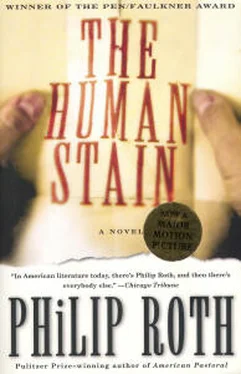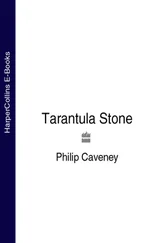“How long did it take?” he asked her.
“We were there for about five hours. I was playing amateur detective. He was in his mid-thirties. I don't know what he did. Salesman or something. He was a woodsy-type personality. Mountain type. Big beard. Bushy hair. She was petite. Sweet face. Light skin. Dark hair. Dark eyes. Very mousy. Intimidated. This is only what I'm getting from the pictures. He was the big strong mountain type and she's this little mousy person. I don't know. But I want to know. I was an emancipated minor. Dropped out of school. I could not go to school. Aside from everything else, it was boring. All this real stuff was happening in people's houses. Sure as shit happening in my house. How could I go to school and learn what the capital of Nebraska was? I wanted to know. I wanted to get out and look around. That's why I went to Florida, and that's how I wound up all over, and that's why I snooped about that house. Just to look around. I wanted to know the worst. What is the worst? You know? She was there at the time he did it. By the time we got there, she was under psychiatric care.”
“Is that the worst thing you've ever had to do? The worst work you've ever had to do?”
“Grotesque. Yes. I've seen a lot of stuff. But that thing — it wasn't that it was only grotesque. On the other hand, it was fascinating. I wanted to know why.”
She wanted to know what is the worst. Not the best, the worst. By which she meant the truth. What is the truth? So he told it to her. First woman since Ellie to find out. First anyone since Ellie. Because he loved her at that moment, imagining her scrubbing the blood. It was the closest he ever felt to her. Could it be? It was the closest Coleman ever felt to anyone! He loved her. Because that is when you love somebody — when you see them being game in the face of the worst. Not courageous. Not heroic. Just game. He had no reservations about her. None. It was beyond thinking or calculating. It was instinctive. A few hours later it might turn out to be a very bad idea, but at that moment, no. He trusts her — that's what it is. He trusts her: she scrubbed the blood off the floor. She's not religious, she's not sanctimonious, she is not deformed by the fairy tale of purity, whatever other perversions may have disfigured her. She's not interested in judging — she's seen too much for all that shit. She's not going to run away like Steena, whatever I say. “What would you think,” he asked her, “if I told you I wasn't a white man?”
At first she just looked at him, if stupefied, stupefied for a split second and no more. Then she started laughing, burst into the laughter that was her trademark. “What would I think? I would think you were telling me something that I figured out a long time ago.”
“That isn't so.”
“Oh, isn't it? I know what you are. I lived down south. I met 'em all. Sure, I know. Why else could I possibly like you so much? Because you're a college professor? I'd go out of my mind if that was you.”
“I don't believe you, Faunia.”
“Suit yourself,” she said. “You done with your inquiry?”
“What inquiry?”
“About the worst job I ever had.”
“Sure,” he said. And then waited for her inquiry about his not being white. But it never came. She didn't really seem to care. And she didn't run away. When he told her the whole story, she listened all right, but not because she found it incredible or unbelievable or even strange — it certainly wasn't reprehensible. No. It sounded just like life to her.
In February, I got a call from Ernestine, maybe because it was Black History Month and she remembered having to identify for me Matthew Henson and Dr. Charles Drew. Maybe she was thinking that it was time for her to take up again my education in race, touching particularly on everything that Coleman had cut himself off from, a full-to-the-brimming ready-made East Orange world, four square miles rich in the most clinging creaturely detail, the solid, lyrical bedrock of a successful boyhood, all the safeguards, the allegiances, the battles, the legitimacy simply taken for granted, nothing theoretical about it, nothing specious or illusory about it — all the blissful stuff of a happy beginning throbbing with excitement and common sense that her brother Coleman had blotted out.
To my surprise, after telling me that Walter Silk and his wife would be up from Asbury Park on Sunday, she said that, if I didn't mind driving to Jersey, I was welcome to come for Sunday dinner. “You wanted to meet Walt. And I thought you might like to see the house. There are photograph albums. There's Coleman's room, where Coleman and Walter slept. The twin beds are still there. It was my boy's room after them, but the same maple frames are still right there.”
I was being invited to see the Family Silk plenty that Coleman jettisoned, as though it were his bondage, in order to live within a sphere commensurate with his sense of his scale — in order to become somebody other, somebody who suited him, and make his destiny by being subjugated by something else. Jettisoned it all, the whole ramified Negro thing, thinking that he could not displace it by any other means. So much yearning, so much plotting and passion and subtlety and dissembling, all of it feeding the hunger to leave the house and be transformed.
To become a new being. To bifurcate. The drama that underlies America's story, the high drama that is upping and leaving — and the energy and cruelty that rapturous drive demands.
“I'd like to come,” I said.
“I can't guarantee anything,” she said. “But you're a grown man. You can look after yourself.”
I laughed. “What are you telling me?”
“Walter may be getting up on eighty, but he is still a large and roaring furnace. What he says you're not going to like.”
“About whites?”
“About Coleman. About the calculating liar. About the heartless son. About the traitor to his race.”
“You told him he was dead.”
“I decided to. Yes, I told Walter. We're a family. I told him everything.”
A few days later, a photograph arrived in the mail with a note from Ernestine: “I came upon this and thought of our visit. Please keep it, if you like, as a memento of your friend Coleman Silk.” It was a faded black-and-white photograph measuring about four by five inches, a blown-up snapshot, more than likely taken originally in somebody's backyard with a Brownie box camera, of Coleman as the fighting machine that his opponent will find facing him when the bell sounds. He couldn't have been more than fifteen, though with those small carved features that in the man had been so engagingly boyish looking mannishly adult in the boy. He sports, like a pro, the whammy glare, the unwavering gaze of the prowling carnivore, everything eradicated but the appetite for victory and the finesse to destroy. That look is level, issuing straight out of him like a command, even while the sharp little chin is steeply tucked into the skinny shoulder. His gloves are at the ready in the classic position — out in front as though loaded not merely with fists but with all the momentum of his one and a half decades — and each is larger in circumference than his face. One gets the subliminal sense of a kid with three heads. I am a boxer, the menacing pose cockily announces, I don't knock 'em out — I cut 'em up. I outclass 'em till they stop the fight. Unmistakably the brother she had christened Mr. Determined; indeed, “Mr. Determined,” in what must have been Ernestine's girlhood hand, was inscribed in faint blue fountain-pen ink across the back of the picture.
She's something too, I thought, and found a clear plastic frame for the boy boxer and set him on my writing desk. The audacity of that family did not begin and end with Coleman. It's a bold gift, I thought, from a deceptively bold woman. I wondered what she had in mind by inviting me to the house. I wondered what I might have in mind by accepting the invitation. Strange to think that Coleman's sister and I had been taken so by each other's company — though strange only if you remembered that everything about Coleman was ten, twenty, a hundred thousand times stranger.
Читать дальше












